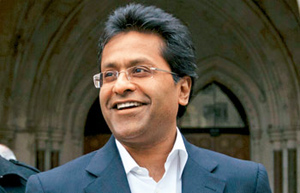New Delhi, Jun 28: At a time when Sushma Swaraj is under fierce opposition attack for "helping" Lalit Modi obtain UK travel documents, her External Affairs Ministry has refused to provide any information about the passport issue involving the scandal-tainted former IPL boss.
The Ministry has refused to answer an RTI application containing seven questions including who had taken a decision not appeal in the Supreme Court the Delhi High Court's decision restoring Modi's passport.
"Kindly note that the office of External Affairs Minister (EAM) has informed that the questions in Serial 1 to 3 of your RTI does not seem to fall under the purview of the RTI act, 2005. As regards to queries Sl No 4 to 7, no information is available with EAM’s office," the MEA said in its reply dated June 26.
The MEA, however, said the application has been "transferred" to its Consular, Passport and Visa Division as well as to the Ministry of Finance, Ministry of Home.
The RTI query, filed by one Rayo from Haryana, was received by the Ministry on June 19 when the opposition was piling up pressure on Swaraj on the ‘Lalitgate’ row.
The first three questions included why Swaraj did not advise Modi to apply for a temporary travel document to the Indian High Commission in London instead if she intended to help him on humanitarian grounds to travel to Portugal. It also asked why the External Affairs Minister did not insist on Modi’s return to India as a condition for issuing a temporary Indian travel document.
The questions from Sl no 4 to 7 included a query on whether the government has lodged any objections to UK for granting residency permit to Modi, who has refused to appear before the Enforcement Directorate, and what steps the government has taken since the issuance of fresh passport to the former IPL boss to enforce the ED summons.
It also included a query on who took the decision not to file an appeal in the Supreme Court against Delhi High Court’s ruling setting aside cancellation of Modi’s passport. It asked whether the ED, at whose instance the passport was cancelled, was consulted on the issue.
The RTI application also asked about government’s response to Modi’s "wild charge that his life will be in danger if he returned to India."





Comments
Add new comment